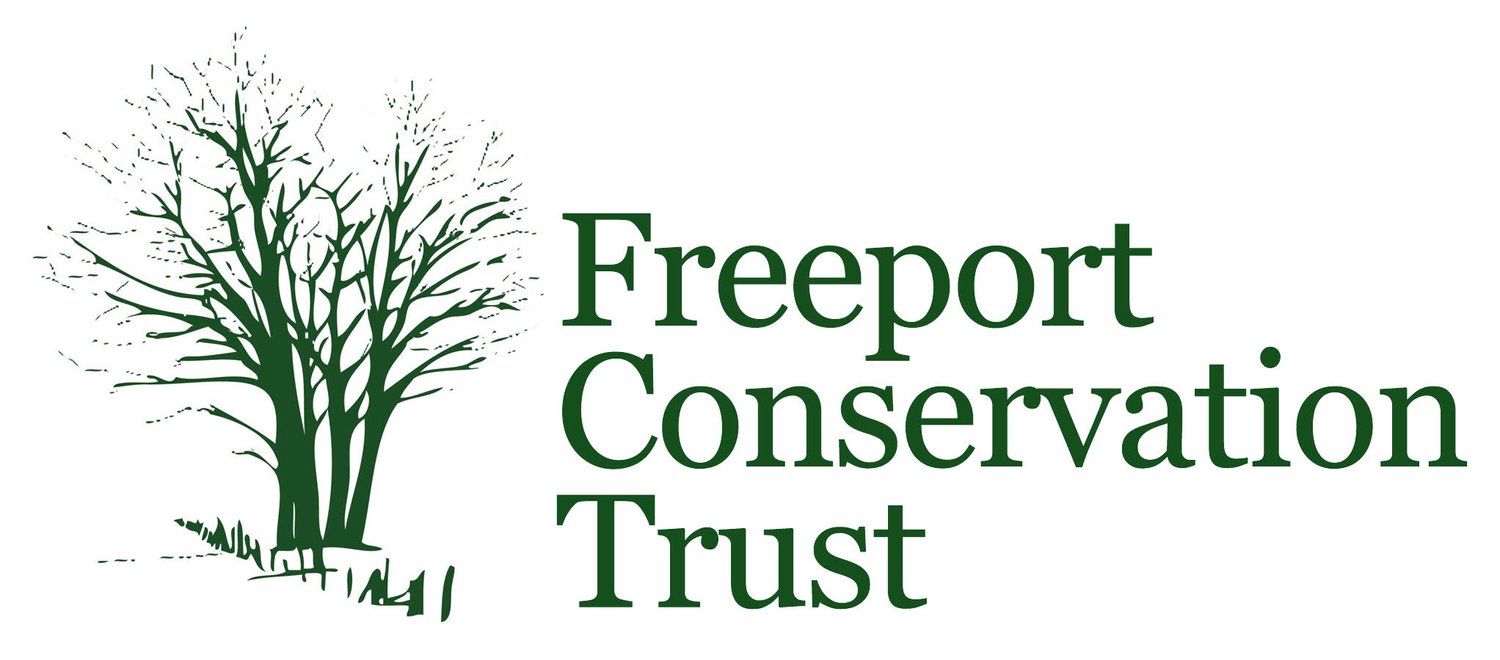
3 dams, 5 days, 7 years of work
FROST GULLY BROOK DAM REMOVAL
Frost Gully Brook has been freed! It took five days to deconstruct the three dams impeding Frost Gully Brook, a small tributary of the Harraseeket River and Casco Bay. Over the last seven years of planning, this Frost Gully restoration project has required the partnership of organizations and individuals including Freeport Conservation Trust, Merrymeeting Bay Chapter of Trout Unlimited, Maine Water Company, US Fish and Wildlife Service Gulf of Maine Coastal Program, Casco Bay Estuary Partnership, and stream restoration specialist Alex Abbott.
These dams were created between the late 1800’s and 1950’s to provide the town with back up fire protection and water supply. Today, Freeport Conservation Trust (FCT) and Maine Water Co. collectively the properties the three dams were on: two dams on FCT’s 13-acre Frost Gully Woods property and one on Maine Water Co.’s property. “For decades these dams have no longer served any purpose” states Carrie Kinne, Executive Director of FCT, “the removal of these dams will improve the brook’s overall health and connectivity”.
The Frost Gully Brook watershed is a wonderfully forested property in the heart of Freeport, creating a thriving ecosystem that is crucial for both the fish that live in the brook, as well as the Freeport community. Now with the removal of the dams, there miles of additionally connected habitat for native sea run” and “resident” brook trout populations discovered by Merrymeeting Bay Trout Unlimited members. Maine is currently the best place for the reintroduction of Wild Eastern Brook Trout as their populations in many other places have been decimated by development. Button below links to June 2023 FCT Newsletter featuring the Frost Gully Dam Removal and restoration.
This dam removal project has returned Frost Gully Brook to a more natural state. “Brook trout will soon be able to move when and where they choose throughout Frost Gully Brook.” stated stream restoration specialist and Freeport resident Alex Abbot. Ponding behind current dams is eliminated, allowing for a free-flowing freshwater environment. This will decrease stream water temperatures and allow for the free flow of nutrients as well as stream-dwelling vertebrates and invertebrates throughout the watershed. “It is this sort of cooperative, comprehensive approach we need across Maine to reconnect streams," says Alex Abbott, Stream Restoration Specialist and Freeport resident.
Photo Credit: Karen Kurkjian








